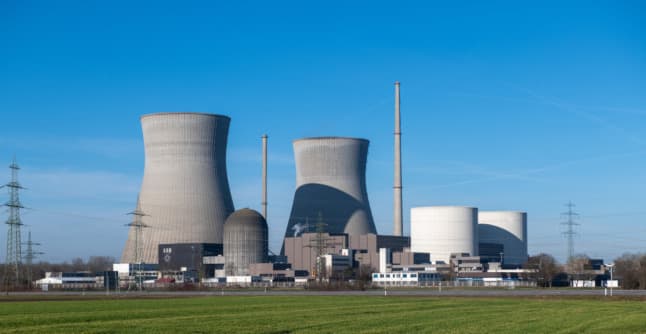German ministries back nuclear exit despite energy woes

Germany should not extend the life of its remaining nuclear power plants, two ministries said on Tuesday, as Europe's largest economy wrestles with its dependence on Russian energy imports following the invasion of Ukraine.
An extension for the country's three remaining installations, which are due to be switched off at the end of the year, was "not advisable even in light of the current gas crisis", a report from the economy and environment ministries said.
Keeping the plants running would not help tackle a crunch at the end of this year, when demand will be highest, and would only see electricity supplies rise "from autumn 2023 at the soonest".
Increased output from nuclear sites would "barely substitute" the need for gas, which is used to heat businesses and homes as well as for generating
electricity.
An extension would face significant administrative hurdles and would need to last "minimum three-to-five years", the report said.
Gas makes up over a quarter of Germany's energy mix, with the country importing more than half of those supplies via pipelines from Russia.
READ ALSO: Russian energy imports 'essential' to Europeans' lives, says German chancellor
The invasion of Ukraine has accelerated a move away from dependence on Russia, with the government announcing increased investments in renewables and LNG terminals for gas imports form overseas.
The potential shortfall has also led to speculation that Germany could make longer use of its existing nuclear power plants.
Under former chancellor Angela Merkel, the country decided to speed up its exit from nuclear power in 2011, following the Fukushima disaster in Japan.
Three plants were decommissioned at the end of 2021, while the final three are set to be switched of at the end of this year.
Comments
See Also
An extension for the country's three remaining installations, which are due to be switched off at the end of the year, was "not advisable even in light of the current gas crisis", a report from the economy and environment ministries said.
Keeping the plants running would not help tackle a crunch at the end of this year, when demand will be highest, and would only see electricity supplies rise "from autumn 2023 at the soonest".
Increased output from nuclear sites would "barely substitute" the need for gas, which is used to heat businesses and homes as well as for generating
electricity.
An extension would face significant administrative hurdles and would need to last "minimum three-to-five years", the report said.
Gas makes up over a quarter of Germany's energy mix, with the country importing more than half of those supplies via pipelines from Russia.
READ ALSO: Russian energy imports 'essential' to Europeans' lives, says German chancellor
The invasion of Ukraine has accelerated a move away from dependence on Russia, with the government announcing increased investments in renewables and LNG terminals for gas imports form overseas.
The potential shortfall has also led to speculation that Germany could make longer use of its existing nuclear power plants.
Under former chancellor Angela Merkel, the country decided to speed up its exit from nuclear power in 2011, following the Fukushima disaster in Japan.
Three plants were decommissioned at the end of 2021, while the final three are set to be switched of at the end of this year.
Join the conversation in our comments section below. Share your own views and experience and if you have a question or suggestion for our journalists then email us at [email protected].
Please keep comments civil, constructive and on topic – and make sure to read our terms of use before getting involved.
Please log in here to leave a comment.